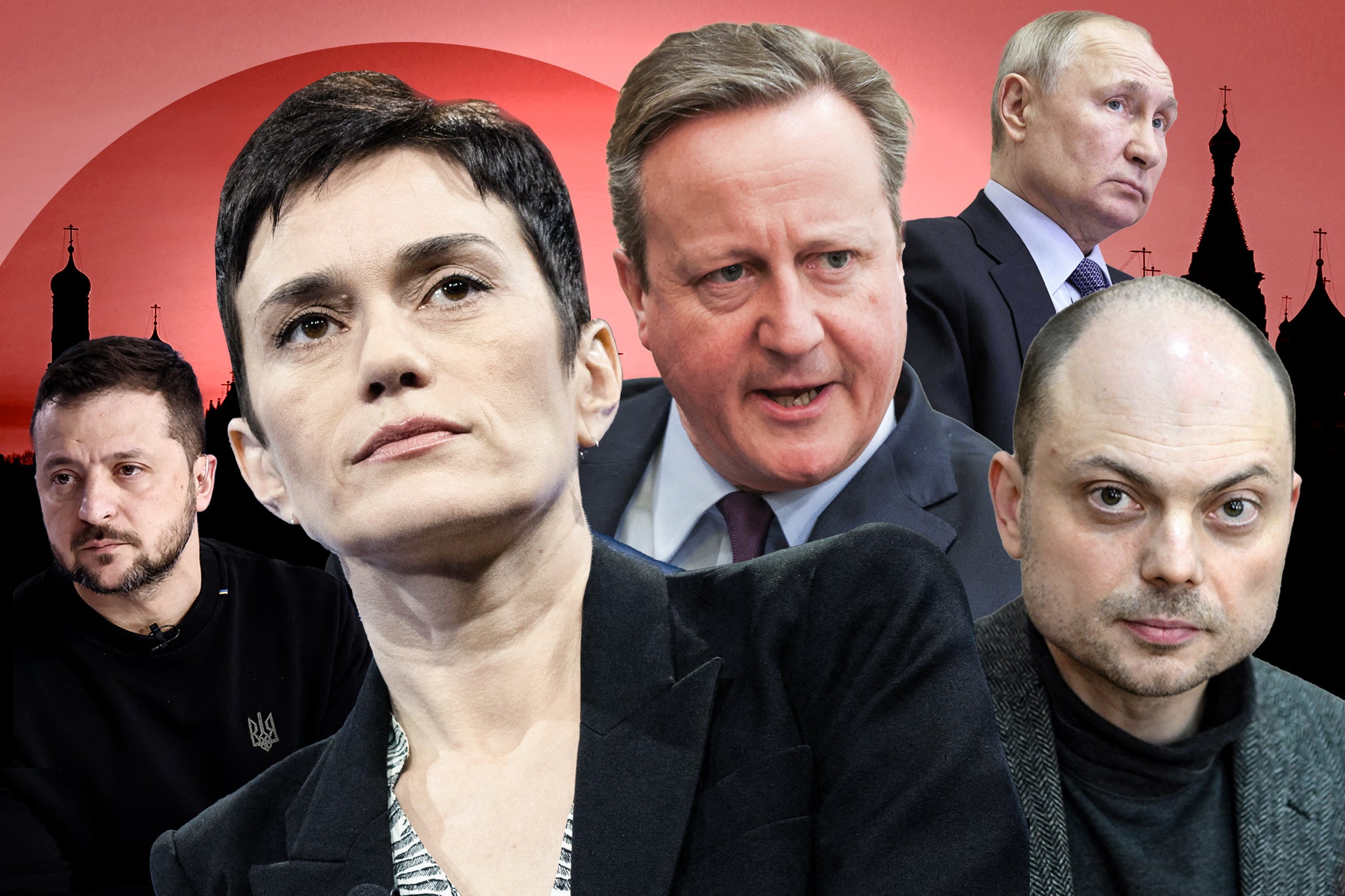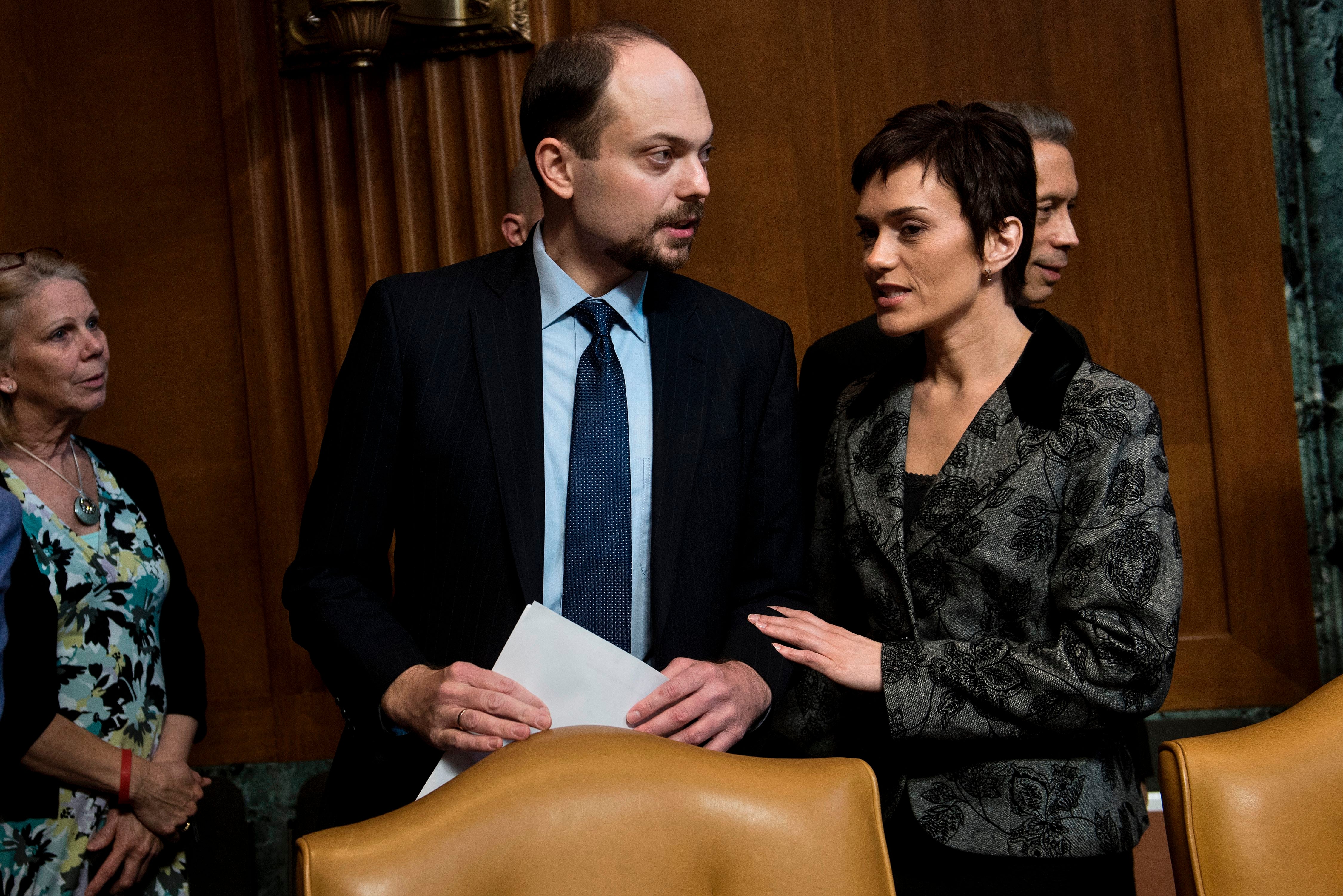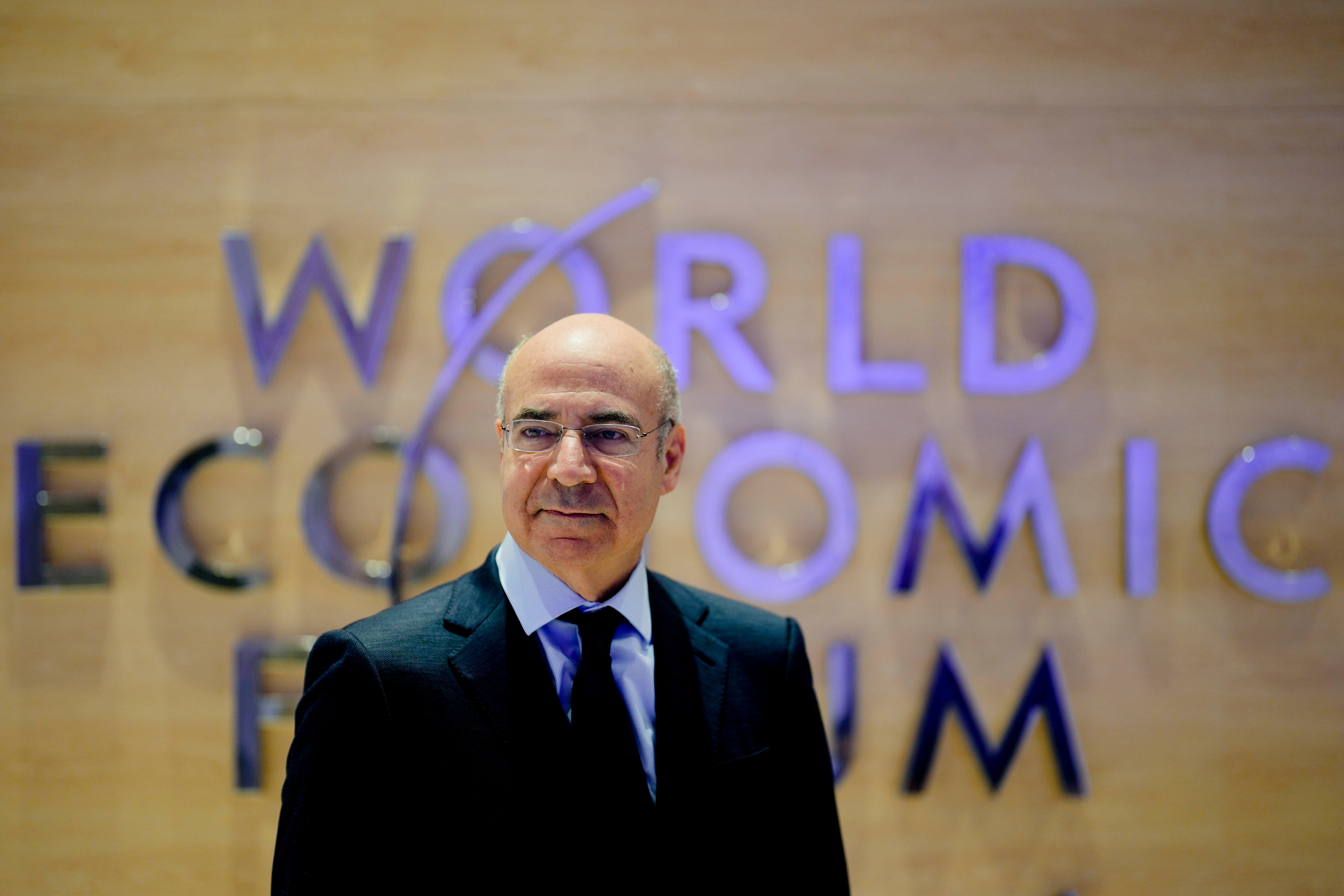David Cameron steps up pressure on Putin to free ‘heir’ to Alexei Navalny
Exclusive: The Whitehall talks come as human rights figures warn British-Russian dissident Vladimir Kara-Murza is next on Putin’s hitlist
Your support helps us to tell the story
From reproductive rights to climate change to Big Tech, The Independent is on the ground when the story is developing. Whether it's investigating the financials of Elon Musk's pro-Trump PAC or producing our latest documentary, 'The A Word', which shines a light on the American women fighting for reproductive rights, we know how important it is to parse out the facts from the messaging.
At such a critical moment in US history, we need reporters on the ground. Your donation allows us to keep sending journalists to speak to both sides of the story.
The Independent is trusted by Americans across the entire political spectrum. And unlike many other quality news outlets, we choose not to lock Americans out of our reporting and analysis with paywalls. We believe quality journalism should be available to everyone, paid for by those who can afford it.
Your support makes all the difference.David Cameron is to rachet up pressure on Vladimir Putin by meeting the wife of Russia’s most prominent opposition leader after Alexei Navalny for crunch Whitehall talks, The Independent can reveal.
In a marked escalation of political tensions between the UK and Russia, the foreign secretary will on Friday sit down with Evgenia Kara-Murza, whose Cambridge-educated husband, Vladimir Kara-Murza, is serving a 25-year sentence in a remote Siberian penal colony for spreading “false” information about the Russian army.
The high-level talks come as human rights figures warn the “heir to Navalny” is next on Putin’s hitlist.

Mr Kara-Murza, 42, who is a British passport holder and studied history at Trinity Hall, was in April handed the longest prison sentence of any Kremlin critic, including the late Alexei Navalny, since the collapse of the Soviet Union in 1991.
At the time, he compared his case to the Stalinist show trials of the 1930s.
Ms Kara-Murza’s meeting with Lord Cameron will take place during a period of heightened concern for the lives of political prisoners in Russia following the death of Mr Navaly in the “Polar Wolf” Arctic Circle penal colony earlier this month, which Ms Kara-Murza believes was murder.

“I think, I hope that I do not need to convince anyone of the urgency of this meeting,” she told The Independent.
Mr Kara-Murza’s crime, his allies say, was accusing Russia of “committing war crimes” in Ukraine during a speech in the US in March 2022.
Since his arrest in April 2022, outside his flat in Moscow, and his sentencing a year later, his wife Evgenia has met with the Foreign, Commonwealth and Development Office (FCDO) several times, during which she has urged them to negotiate his release.
It maintains that it will not negotiate with the Kremlin, as it does not want to encourage state hostage-taking, and the meetings have failed to produce any action.
Despite previous efforts to meet Liz Truss and James Cleverly, Ms Kara-Murza was unable to plead her husband’s case to either of the then foreign secretaries.
Prominent human rights activists and British politicians are urging the UK government to drop their long-standing policy opposing hostage negotiations.
Baroness Helena Kennedy, a Labour member of the House of Lords who champions human rights, said Mr Kara-Murza will die if he is not rescued.
“If we do not make a prisoner exchange for Vladimir Kara-Murza, a British citizen, he will die at the hands of Putin,” she said. “Of that, I have no doubt. I would urge a review of our policy and that it be taken to secure Vladimir’s release.”
Bill Browder, formerly the largest foreign investor in Russia before being exiled by the Putin regime, also urged Lord Cameron to reconsider the policy on prisoner swaps with the Kremlin.
“We need Cameron to save Vladimir’s life,” he said. “Vladimir is dying in a Siberian prison, he is a British citizen and we don’t want another Navalny situation, which can now easily be foreseen.
“The foreign secretary should engage with other allies in organising a prisoner swap for Vladimir before it is too late.”
On 19 February, despite the evident risk to Mr Kara-Murza’s life indicated by Mr Navlany’s death three days earlier, UK foreign office minister Leo Docherty reaffirmed the opposition to prisoner swaps.

“We could not and would not countenance a policy of prisoner swaps but of course, we continue to make every effort to support Ms Kara-Murza and seek the release of Vladimir,” he told MPs in the Commons.
For Ms Kara-Murza, this is not good enough. That her meeting will take place just hours after Navalny’s funeral is evidence enough of the pressing need to change their policy.
She said, at the least, she hopes to persuade Lord Cameron to create a permanent group dedicated to hostage affairs, to avoid her having to re-explain her husband’s plight.
Before Mr Navalny’s death, Western officials, including British ones, often told her that Putin would not kill political prisoners that he had already jailed. They will just keep them there, the officials said.
“Well, the day after tomorrow, Alexei Navalny will be buried in Moscow,” she said. “There will be a funeral.
“So, I think, I hope that I do not need to convince anyone of the urgency of this. The regime has crossed all the lines already.”
Meanwhile, the wife of Navalny, Yulia Navalnaya, has described the Russian president as a “bloody monster” who acts like a mafia godfather as she prepared to bury her husband.
In an address to the European parliament on Wednesday, she urged Western leaders not to treat the Russian president as a rival politician but as a gangster.
The death of Navalny, who died on 16 February while imprisoned in a Soviet-era Arctic penal camp, prompted hundreds of Russians across the country to stream to impromptu memorials with flowers and candles.
His cause of death is still unknown, though Ms Navalnaya has claimed he was poisoned, while supporters and Western leaders have said they hold Putin responsible for his death. The Kremlin has denied those claims.
Join our commenting forum
Join thought-provoking conversations, follow other Independent readers and see their replies
Comments